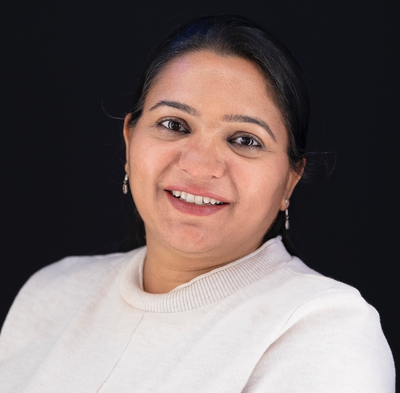Europe is redefining healthcare for the silver generation
With one in five Europeans now over 65, the continent is reimagining healthcare and putting independence, dignity and home-based recovery at its heart.

Across the globe, healthcare systems are being reshaped by a single unstoppable force: ageing. Europe is already deep into this demographic shift, with one in five citizens aged over 65. In 2024, the share of over-65s increased in 26 EU countries compared with 2023, decreasing only in Malta.
In the coming decades, the upward trend in ageing populations is expected to continue due to increased longevity and persistently low fertility rates. It is a double whammy that is forcing societies to think about affordable care for the elderly, and how they can design systems that allow people to live and age well at home.
Europe’s demographic reality is stark. In 2024, the EU counted 449 million people, 21.6 per cent of whom were aged 65 or older, with the median age climbing to 44.7 years. By 2050, the 65-and-over group will exceed 129 million.
The old-age dependency ratio, which is older adults relative to the working-age population, has reached 37 per cent and is forecast to pass 50 per cent in the coming decades. This means there are fewer than three working-age Europeans for every older citizen, putting pressure on health and social care systems that are already constrained by workforce shortages.
Ageing is uneven across the bloc, with populations in Italy, Portugal and Bulgaria among the oldest, while Ireland and Luxembourg remain comparatively younger. But irrespective of the country or geography, most older adults wish to age in place, maintaining independence and dignity.
The rise of at-home healthcare
Home-based care, once a complement to hospital medicine, is fast becoming the backbone of modern health systems. It includes home nursing, remote monitoring, rehabilitation, palliative care, and “hospital-at-home” models, where acute care is delivered under digital supervision.
Grand View Horizon research values the European home healthcare market at roughly US$122 billion in 2024, projected to reach US$216 billion by 2033, marking an annual growth rate of nearly 10 per cent. The surge is fuelled by chronic disease, ageing, and the post-pandemic reconfiguration of care.
The rise of this industry is proof that the model works. Individual hospital-at-home pilots across Europe, including the UK and Spain, have shown lower 30-day readmissions and higher quality-of-life scores for older patients. The Dutch Buurtzorg network, comprising small, self-managing nursing teams, achieves high satisfaction among both patients and nurses while reducing unnecessary hospital stays.
It works economically too. Reallocating capacity from institutions to home-based services eases fiscal pressure while matching public preference for home recovery. As the OECD notes, long-term care spending already averages 1.8 per cent of GDP and is climbing; home care offers the most sustainable relief valve.
Digital care navigation
Delivering healthcare at home is complex and works only when all the pieces align but digital care navigation platforms help. These systems coordinate specialists, nurses, social workers, family carers and medical devices in one secure ecosystem.
Europe now has the legal and technical foundations to support this. The European Health Data Space (EHDS), adopted in 2025, standardises the use and sharing of electronic health data across the EU, while MyHealth@EU enables cross-border exchange of e-prescriptions and patient summaries in 25 member states. Together, these systems make continuity of care across regions and even borders technically possible for the first time.
On top of these rails, new navigation platforms are flourishing:
• Huma, a UK-based EU MDR-certified platform, supports remote monitoring and virtual wards.
• Cera, one of Europe’s largest home-care operators, uses AI-driven digital care plans that reportedly save the NHS over £1.5 million a day by detecting early signs of illness in elderly people. The technology has halved hospital admissions and reduced costly residential care referrals and ambulance call-outs for high-risk over-65s.
• BuurtzorgWeb underpins the Netherlands’ community nursing model, marrying human autonomy with digital documentation.
These tools unify patient data, schedule multidisciplinary teams, issue early-warning alerts, and connect family caregivers—extending clinical reach without replacing empathy.
For the silver generation, the impact is profound with fewer emergency visits, faster interventions, and greater emotional security. As EHDS and MyHealth@EU mature, digital navigation will move from pilot to default.
The economics of recovery
The truth is neglecting emotional and functional recovery carries real costs. Post-treatment depression and anxiety among older adults drive higher medication use, readmissions, and workforce withdrawal. By contrast, integrated home-care models reduce hospital stays and improve independence. These benefits are now measurable in both GDP and quality-adjusted life years.
For payers, every relapse avoided represents savings; for families, it means presence restored. The macroeconomics of ageing therefore point squarely to home-first, navigated care as both a humane and financially sound policy.
The 2030 outlook
As ageing populations rise across nations, the new measure of success in healthcare will not be the number of hospital beds but the number of older adults living independently—connected, supported, and fulfilled.
Home-based services and digital navigation platforms are not fringe technologies but the scaffolding of future health systems. For Europe, they represent the only sustainable path through demographic headwinds. The goal for policymakers and various stakeholders in the industry should be to turn longevity into vitality.



